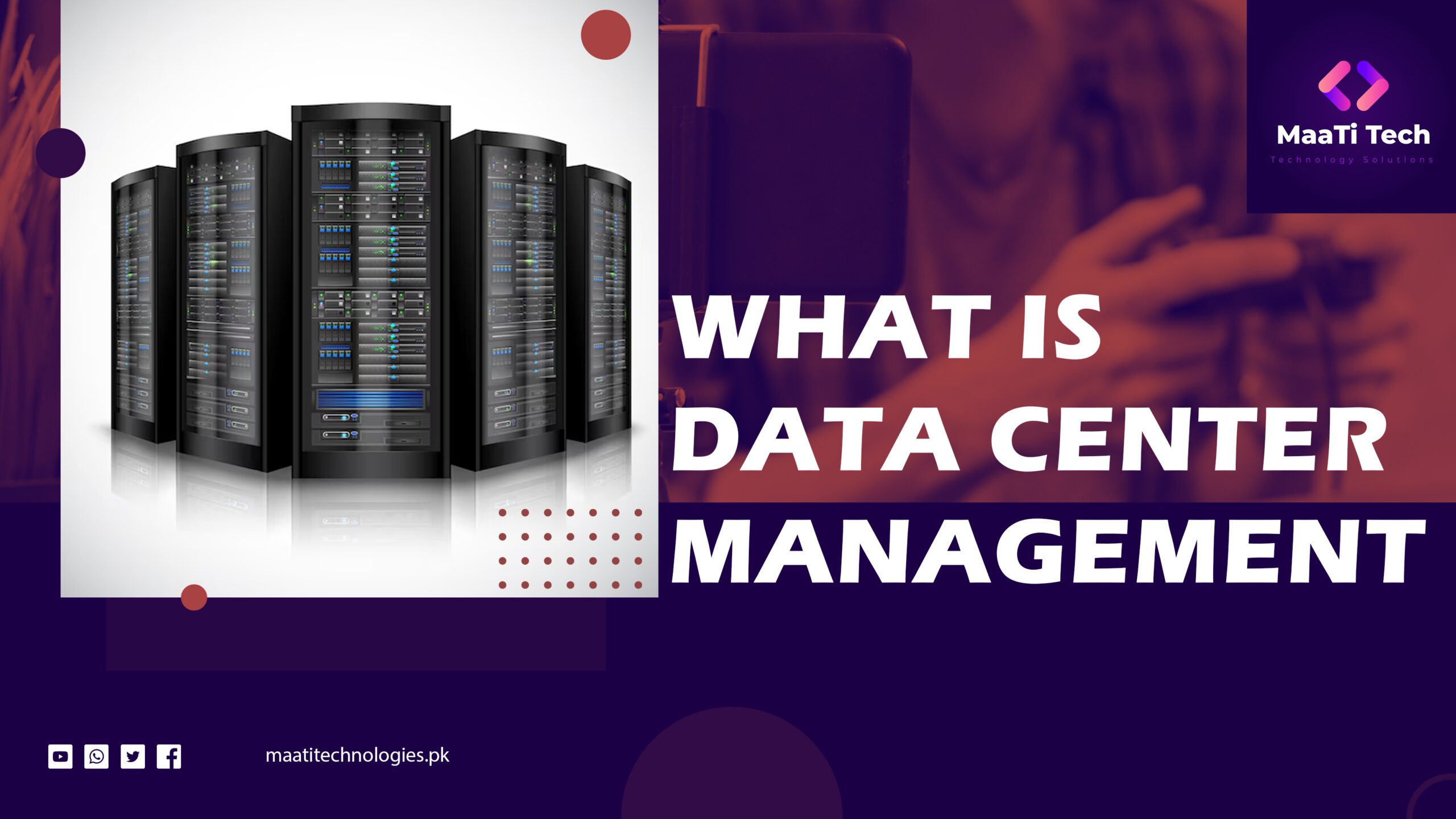What Is Data Center Management? Key Benefits and Best Practices
In today’s increasingly digital world, data centers play a pivotal role in supporting the backbone of many businesses. But to ensure the smooth and efficient operation of these centers, data center management is crucial. Whether you’re a tech professional or a business owner curious about managing your infrastructure, this guide will help you understand what data center management entails, its key benefits, and best practices for optimizing your facility.
Table of Contents
1. Introduction

In a world where data drives every aspect of business, the role of a data center is more critical than ever. Data centers are physical facilities that house an organization’s IT infrastructure, such as servers, storage systems, and networking equipment. As the demand for data grows, the complexity of managing these centers increases, making data center management a vital component of any business strategy.
But what is data center management exactly? How does it help businesses maintain efficiency, security, and reliability in their operations? Let’s explore these questions and discover the key benefits and best practices that make data center management essential.
2. What Is Data Center Management?
Data center management refers to the set of tasks, procedures, and tools used to manage the hardware, software, and services within a data center. It involves overseeing everything from the physical infrastructure (like servers and cooling systems) to the virtualized environments (such as cloud storage and virtual machines) that keep a data center running smoothly.
Data center managers are responsible for ensuring the center’s continuous operation, minimizing downtime, and optimizing performance. They must also ensure data security, compliance with regulatory standards, and cost-effectiveness, all while managing the center’s energy consumption and physical space.
Key activities involved in data center management include:
- Monitoring: Keeping an eye on servers, networks, and systems to prevent failures.
- Optimization: Making adjustments to improve performance and reduce costs.
- Security: Implementing measures to protect data and systems from cyber threats.
- Maintenance: Regular updates and checks to prevent equipment failures.
3. Importance of Data Center Management
Without proper data center management, businesses run the risk of costly downtime, data breaches, and inefficient use of resources. Effective management ensures that data centers:
- Operate efficiently: Properly managed data centers can reduce energy consumption, save costs, and improve overall performance.
- Remain secure: With the right security protocols, data centers are better protected from cyber-attacks and unauthorized access.
- Are scalable: As your business grows, your data center should be able to scale accordingly without major overhauls.
- Stay compliant: Many industries are subject to strict regulations regarding data storage and security, and good management ensures these rules are followed.
4. Key Components of Data Center Management
Managing a data center involves several interconnected components, all of which need to function seamlessly to ensure the center runs efficiently. Let’s break down the key components:
a. Physical Infrastructure
At its core, a data center is a physical facility filled with servers, storage systems, cooling systems, and networking equipment. Managing the physical infrastructure involves ensuring that the hardware is well-maintained, cooling systems are operating efficiently, and there is adequate space for future expansion.
b. Monitoring and Optimization
Constant monitoring of performance is essential in a data center. This includes tracking server health, storage utilization, network traffic, and more. Monitoring tools help data center managers detect potential issues before they become problems, allowing for proactive optimization.
c. Security
In the age of cyber threats, ensuring data security is non-negotiable. Data center security management includes both physical security (such as controlling access to the facility) and cybersecurity (implementing firewalls, encryption, and monitoring for suspicious activity).
d. Energy Efficiency
Data centers are notorious for their energy consumption. Managing energy usage not only reduces operational costs but also minimizes the environmental impact of the data center. Modern management practices focus heavily on energy-efficient cooling and hardware solutions.

5. Benefits of Effective Data Center Management
Investing in proper data center management can lead to a wide array of benefits. Below, we explore how it can positively impact your business:
a. Improved Performance and Uptime
With proactive monitoring and optimization, businesses can reduce downtime and ensure their systems are always up and running. The more efficient a data center is, the better it can support business operations.
b. Cost Savings
Efficient data center management leads to cost savings in several areas, such as energy consumption, hardware maintenance, and resource allocation. Optimizing storage, improving cooling, and automating routine tasks can significantly cut costs over time.
c. Enhanced Security
With a focus on both physical and cybersecurity, businesses can ensure their data is protected from breaches and unauthorized access. Regular audits and updated security protocols further enhance the safety of sensitive information.
d. Scalability and Flexibility
Well-managed data centers are more agile and can scale as your business grows. This flexibility allows companies to add new resources without disrupting existing services.
6. Best Practices for Data Center Management
To maximize the benefits of your data center, consider adopting the following best practices:
a. Implementing Automation
Automation tools can significantly reduce manual effort and improve accuracy in routine tasks such as system monitoring, patching, and updating. Automating routine processes ensures consistency and frees up staff to focus on more critical issues.
b. Regular Maintenance and Monitoring
Staying ahead of potential issues through regular maintenance is key to minimizing downtime. Implementing 24/7 monitoring systems helps detect and resolve problems before they escalate.
c. Strengthening Security Protocols
Incorporating multi-layered security protocols (like firewalls, encryption, and biometric access control) helps protect the data center from both physical and digital threats. Regular security audits ensure compliance with industry standards.
d. Optimizing Energy Efficiency
Data centers consume massive amounts of energy. Adopting energy-efficient cooling solutions (like hot aisle containment or liquid cooling) and investing in low-power hardware can reduce operational costs and environmental impact.
e. Ensuring Compliance with Industry Standards
Maintaining compliance with standards such as ISO/IEC 27001 (Information Security Management) and HIPAA (Health Insurance Portability and Accountability Act) is essential for businesses in regulated industries. Regular audits help ensure that your data center meets these standards.
7. Challenges in Data Center Management
As businesses continue to scale and adopt new technologies, data center management faces several challenges:
a. Growing Data Demands
With the increasing volume of data generated by businesses, data centers need to continuously scale to accommodate this growth, leading to capacity planning challenges.
b. Security Threats
The rise of cyber-attacks and evolving threat landscapes requires constant updates to security measures. Keeping ahead of these threats while maintaining compliance can be difficult but is crucial to prevent data breaches.
c. Managing Legacy Infrastructure
Many data centers operate with a mix of legacy and modern infrastructure, which can make optimization and scaling difficult. Replacing outdated systems while ensuring business continuity requires careful planning.
8. Conclusion
Data center management is a critical function for any organization that relies on data to drive its operations. By ensuring that your data center is well-managed, secure, and scalable, you can improve performance, reduce costs, and support future growth. Following best practices such as automation, regular maintenance, and a focus on energy efficiency will ensure your data center remains an asset to your business, not a liability.
Further Reading & References:
- Gartner’s Guide to Data Center Management
- Uptime Institute: Data Center Standards
- Energy Star for Data Centers



